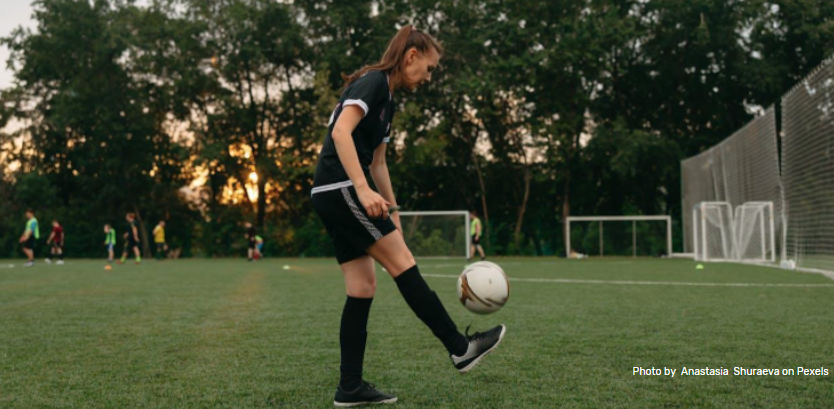I remember the magic of my first cross-country season back in 7th grade. I remember how running felt more like playing. How I literally laughed as I ran, because I was having so much fun. How races were adventures between me and my teammates.
I remember so clearly, because this free-spirited joy in running now feels elusive. In high school, the pressure to perform in order to get recognized by college coaches is high. Once in college, the competition is fierce, sometimes even amongst teammates. Perhaps most insidious is the underlying belief that thin = fast.
There’s an elephant in the locker room.
Eating disorders in runners has been getting a lot of attention on social media recently, but sadly, this has been a long-standing issue. The link between running and disordered eating behaviors was first recognized by a team of doctors in 1983, and research has continued to demonstrate a heightened risk of developing pathological eating and body image issues among competitive runners. It has even been suggested that the female athlete triad (a syndrome involving low energy availably, menstrual dysfunction, and low bone mineral density) may be especially prevalent in sports that encourage leanness, including running.
Here’s the scary part: many of these disordered behaviors have been normalized in running culture. Reaching an “optimal race weight” is understood as a sure-fire way to improve. Training through illness or fatigue is applauded. Amenorrhea is an unavoidable side-effect of high mileage, and for some, a badge of glory.
Perhaps such beliefs stem from a lack of awareness. Surveys have revealed that both athletes’ and coaches’ knowledge of the female athlete triad is limited. The social stigma attached to eating disorders can also discourage runners from seeking help, which may be why disordered behaviors can be disguised as “training.” Underlying both of these issues is the ongoing emphasis on leanness for performance. However, research shows that rapid weight loss actually impairs performance, not to mention the serious physiological and psychological complications associated with eating disorders.
Lately, runners have been speaking up and it seems to be having a snowball effect. Last December, Rachele Schulist’s Instagram post on her struggle with an eating disorder as a top collegiate runner went viral. This April, professional runner Tina Muir publicly announced her decision to stop running in order to address her amenorrhea. And in May, professional runner/entrepreneur/activist Lauren Fleshman’s published “Dear Younger Me,” a letter in which she brings to light the overwhelming pressures female runners face in high school and college.
So maybe, the elephant isn’t in the locker room anymore. But it’s still in the building. As more and more runners share their stories and alleviate the shame in doing so, I cannot help but wonder: where do we go from here? I believe running can be empowering. Despite personal exposure to the “darker side” of running culture, I have found meaning in my life through this sport. So how do we foster the joy? We have to expand the conversation beyond social media. It’s time to get coaches, athletic training staff, and governing officials involved. It’s time to make prevention a priority. It’s time to create team environments where it’s understood that bodies change as we grow, and health is prioritized above how fast we can run a mile, and teammates reach out when they’re concerned about one another. What would running look like then?
Change starts with passionate individuals. I encourage any athlete, coach, friend, etc. to check out the following resources:
- Strong Runner Chicks is an amazing online community that celebrates diversity of body sizes in female distance runners.
- Running On Om Podcast Episode #213 explores why eating disorders are so prevalent among runners and how to address it.
- And of course, should your or a teammate need support, NEDA offers a plethora of resources, including a toolkit for coaches and trainers.
Ariel Beccia majored in neuroscience while at St. Lawrence University and is now researching eating disorder treatments at the National College of Natural Medicine. She loves doing qualitative research because she is passionate about hearing people’s stories.






